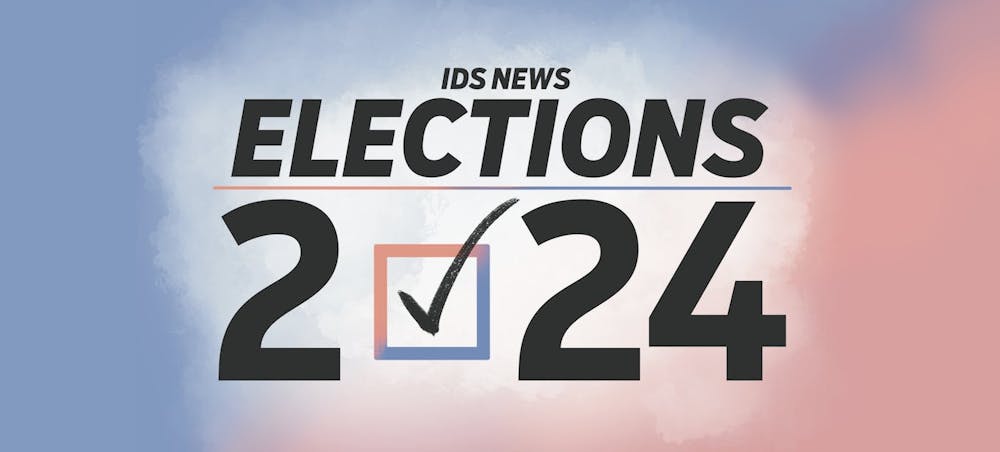As the days until the 2024 presidential election slip away, the polls have declined to give a clear answer in either direction. In Bloomington, many voters are anxious to see the results.
At the time of writing, over 22,000 Monroe County residents already cast their ballots for early voting, a number that has increased from both the 2016 and 2020 elections. In 2020, President Joe Biden won the county with 63.1% of the vote, though he lost the state of Indiana to former President Donald Trump, who won 57% of the vote.
The Democratic presidential candidate has won Monroe County in every general election since 2004. It is one of five counties in Indiana that voted blue in 2020.
George Turchyn, an IU alumnus and Bloomington resident of 70 years, said he enjoyed the experience of voting early and found it liberating despite possible outcomes.
“I’m scared. My wife and I, I’m married, have thought about possibly leaving the country if Trump wins,” Turchyn said. “We’ve looked at several places — Portugal, Spain, Britain.”
IU sophomore Anna Fernandez is also nervous. A first-time voter, she said it was important to have a part in democratic processes.
“My roommate and I were talking about, like, we don’t even want to watch the election night,” Fernandez said. “We just want to wake up and see what happens because it’s just too nerve-racking to think of how different the country could look.”
The Indiana Daily Student spoke to several voters who didn’t want to share their names in their response about the election, and others declined to interview. One even stated it was “too dangerous” to share their opinion. A Cato Institute poll found almost two-thirds of Americans felt the current political climate made them apprehensive about sharing their views,
Alex Chueh is an election mapper from Cambridge, Massachusetts, a town he called the “bluest place in New England.” He picked places across the Midwest that had a strong lean toward Republican candidates in previous elections to visit and see other perspectives as part of an ongoing social project that included talking to a stranger every day.
“I don’t really encounter a lot of open political expression beyond your typical yard signs and your flags flying,” Chueh said. “I think people are generally disengaged with politics.”
He said he found a 2017 Vox article, which said many voters don’t have a fully liberal or conservative ideology, to be particularly interesting. Chueh thought many voters don't think about politics enough to have a set ideology.
He said he thought the rural areas of Minnesota, Michigan and Wisconsin were more representative of what the average political ideology voter makeup may look like.
“When people typically say “centrist,” they imagine someone who has moderate views on everything,” Chueh said. “The average centrist in the U.S. is actually someone who has strong views in opposite directions.”
More voters consider themselves to be independent rather than a Republican or Democrat. The two-party system forces voters to make a choice, but some find the options to be lacking.
IU student Maddy Rodriguez said while she didn’t think Vice President Kamala Harris was perfect, she planned to vote for her once she received her absentee ballot.
“I think that we’re, for lack of a better word, screwed either way,” she said.




